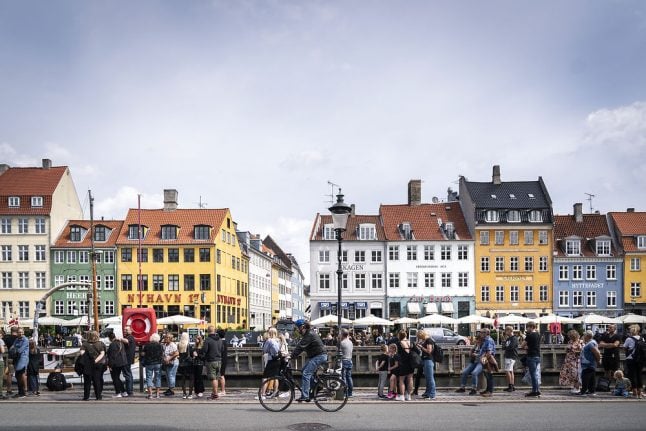Since July 4th, Denmark's borders have been open to tourists from six non-European countries given the same “yellow” or “open” classification as most of Europe. These are Australia, Canada, Japan, New Zealand, South Korea and Thailand.
That means residents of these countries can come to Denmark as tourists.
You do, however, need to bring documentation showing that you have a valid accommodation booking for a minimum of 6 nights in Denmark, if you are coming to the country for tourism purposes.
Non-tourists from countries categorised as “open” can also travel to Denmark for business purposes or if they are visiting a close family member resident in the country. You can read the rules for this in detail here.
Click here for information about travel to Denmark from Europe.
READ ALSO: Travel to Denmark: The health rules and guidelines tourists should know about
The remainder of the world is still classified as “red” or “banned” in the terminology used by Danish or authorities, which means that tourists from these countries cannot enter Denmark.
Danish residents travelling back to Denmark from these countries are strongly advised by the Ministry of Foreign Affairs to self-quarantine for 14 days unless they take a Covid-19 test on arrival, in which case they can leave quarantine if the test result is negative.
For others, certain circumstances related to work, private or family matters, legal matters and property ownership can provide the basis for travel to Denmark.
If you have a job in Denmark or are travelling to the country for a business meeting, you can enter provided you can show documentation. This can take the form of an employment contract or email confirming the meeting, for example. In the latter case, you must provide contact details for a person who can verify the meeting.
You can also enter Denmark if transporting goods for business purposes, including if you are using your private vehicle for this. You must also show documentation in this case, such as a receipt, invoice or purchase agreement.
Partners, parents, children, siblings, grandparents and certain other close family members of people residing in Denmark can also come into the country. You will have to provide details of who your relative is (like a copy of their individual personal registration (CPR) card), and a marriage or birth certificate for that person. Partners’ relationships must have had a duration of at least three months and involve in-person meeting (i.e. not solely online or by telephone).
Relationships must be ‘solemnly declared’ on an official form which can be downloaded here.
You will also have to present proof of a negative Covid-19 test taken within the last 72 hours.
If taking a test – and receiving a negative result – within the time frame before your entry to Denmark is not possible, you will be required to take a test within 24 hours of arrival and to self-isolate for at least 48 hours after taking the test. See here for more details.
Forms for both of these instances must be downloaded and can be found here (negative Covid-19 test) and here (no test).
READ ALSO: Denmark makes face masks mandatory at airports
If you are receiving healthcare treatment in Denmark, you can enter with a notice from the relevant private or public hospital confirming this.
It is also permitted to travel to Denmark to enter a funeral. This requires a letter of confirmation from a chapel, church office or equivalent.
A few other circumstances also provided exemption from the ban on entry to residents of “red” countries. These include participation in legal proceedings, embassy or consular business and ownership of seasonal property such as a summer house. Documentation is required in each case.
Summer house owners may bring their families and members of their households with them, if these have a negative Covid-19 test taken within the last 72 hours.
Further information and contact details for Denmark’s police hotline for people travelling to the country can be found on the Danish Police website.



 Please whitelist us to continue reading.
Please whitelist us to continue reading.
Member comments